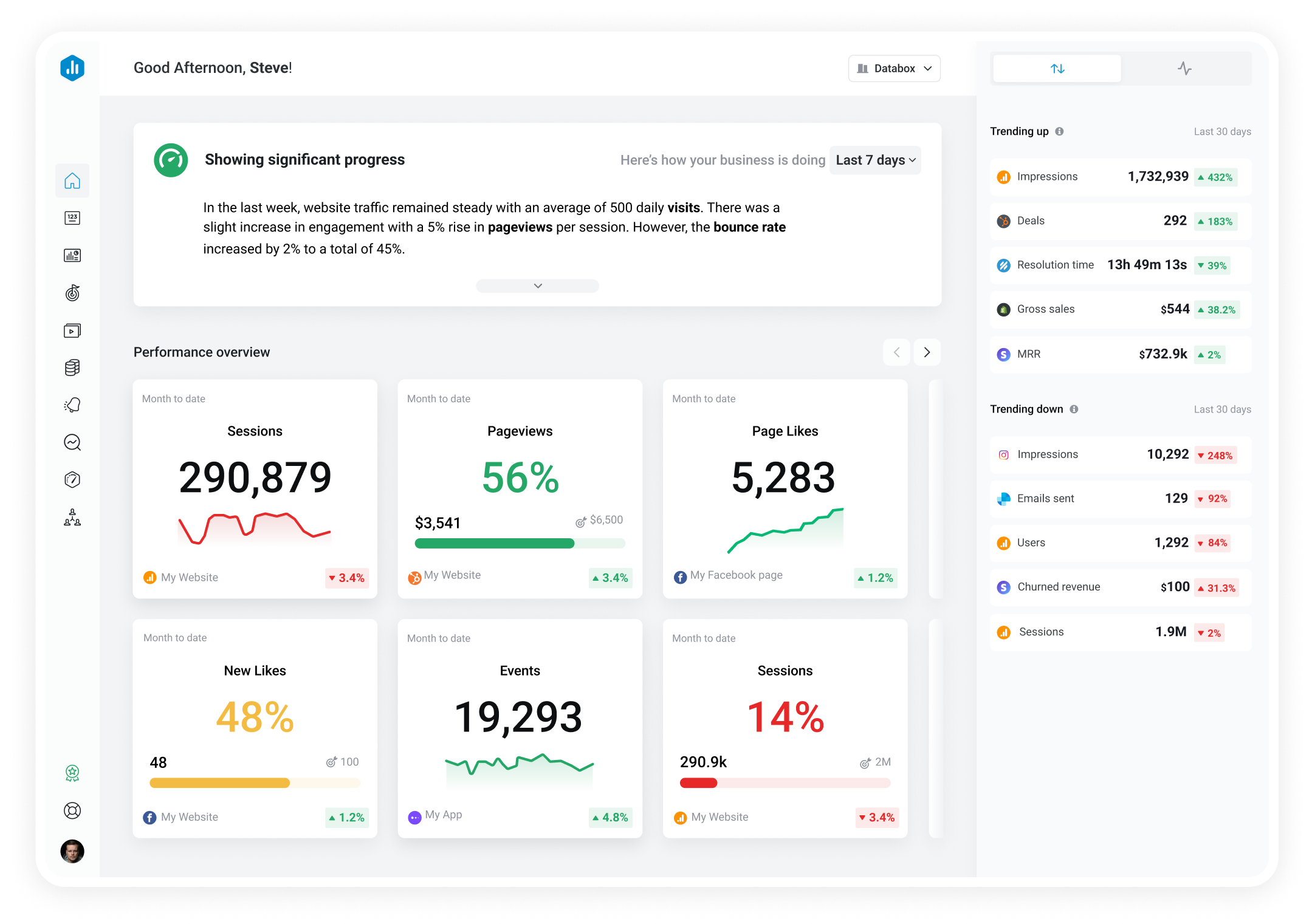Track all of your key business metrics from one screen
GET STARTED
 Shopify
Quantity by Product Variant
Shopify
Quantity by Product Variant This metric shows the number of units sold per specific variation (e.g. color, size) of a product. It helps measure the popularity of each variant and informs inventory management decisions.
With Databox you can track all your metrics from various data sources in one place.

Used to show comparisons between values.
Databox is a business analytics software that allows you to track and visualize your most important metrics from any data source in one centralized platform.
To track Quantity by Product Variant using Databox, follow these steps:
 Goals
Goals Scorecards
Scorecards Metric Digest
Metric Digest Metric Builder
Metric Builder Data Calculations
Data Calculations Performance Screen
Performance Screen